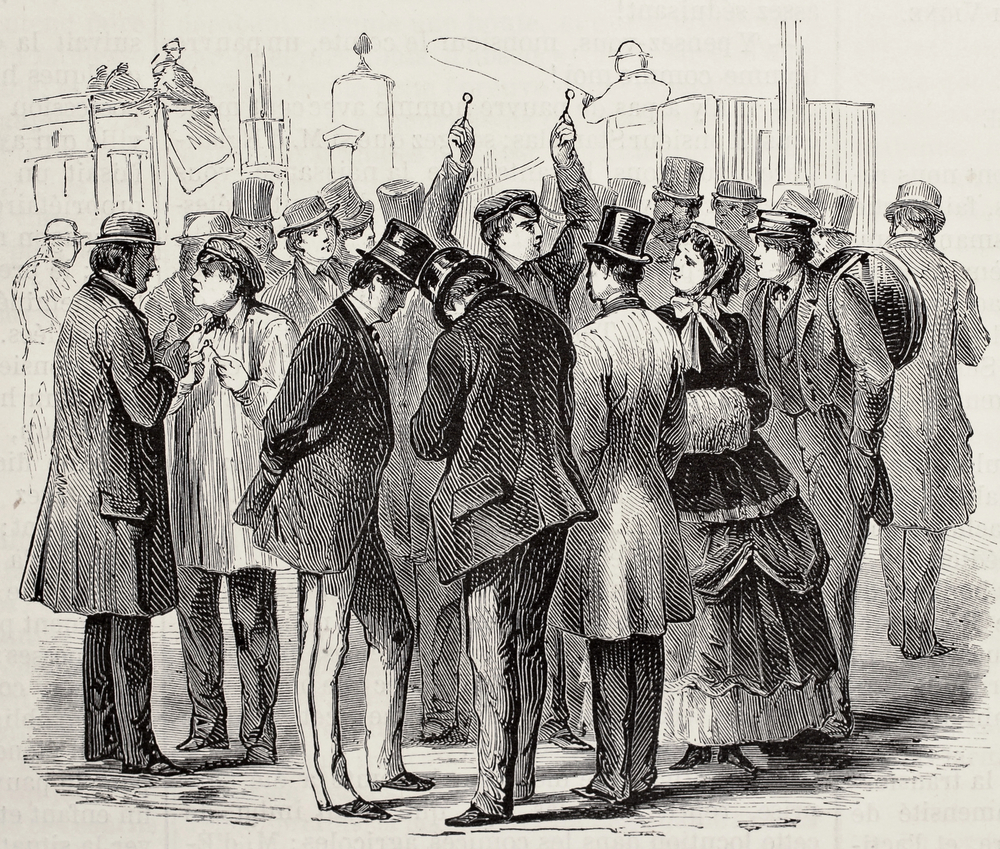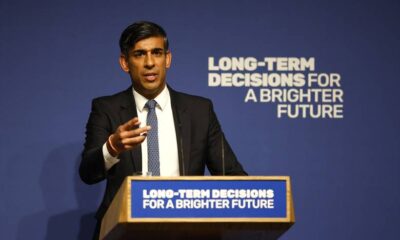John Phelan is an economist at Center of the American Experiment.
Finance
The politics of protectionism: the British general election of 1847

The historian AJP Taylor wrote that the 1923 general election was “the only election in British history fought solely and specifically on patronage.” The 1847 general election is one of the few contenders.
The Reform Act of 1832 gave voting rights to elements of the growing urban middle class. The Tory Party fought against the law, but some now realized they had to adapt to the new political reality. The Tories were traditionally the party of the landed aristocracy and needed new allies. One of the more thoughtful Tories, Robert Peel, believed that they were to be found among the growing urban working class, which was often at odds with the Whig middle class. Before the 1835 election, Peel issued his ‘Tamworth Manifesto’, which reconciled with the Reform Act and became the creed of the new Conservative Party. One Nation Toryism was born.
Aristocrats and workers soon united in opposing the Poor Law Reform Act of 1834, a major Whig policy that aimed to reduce social spending. Conservatives, bitterly resentful among workers, also opposed it. Radical Tory and Factory Law reformer Richard Oastler branded it ‘damnable, hellish, odious, despotic, unchristian, unconstitutional and unnatural’.
Peel’s Conservatives were elected by a landslide in 1841, but tensions arose between Peel’s ‘One Nation’ Conservatives and the Tory aristocrats. The first, inspired by Richard Cobden’s Anti-Corn Law League, wanted to abolish the Corn Laws, the tariffs that kept foreign wheat out of Britain, raised food prices and hurt the working class, and made up for lost revenue with a new income tax. These laws, justified on grounds of ‘food security’, financially benefited the landowning Tories. These protectionists – branded by Queen Victoria as ‘hideous, short-sighted and unpatriotic’ and among whose leaders was Benjamin Disraeli – opposed Peel to the last – and beyond.
The Corn Laws were abolished on June 25, 1846. The Protectionists retaliated the same evening by splitting and allying with the Whigs and Irish Repeal Party. Peel resigned and would never hold office again. Cobden paid tribute to him:
If he has lost office, he has won a country. For my part, I would rather descend into private life with that last standard of his… than rise in any other way to the highest pinnacle of human power.
Peel’s followers – ‘Peelites’ – supported the Whig government of Lord John Russell, but this volatile situation collapsed in July 1847 and an election was called.
“The election of 1847 was fought…in an atmosphere of confusion, disorder and recrimination,” the historian wrote Robert Blake. Not only were the Whigs against the Conservatives, but the Conservatives were against each other, and the Irish Repeal Party was against them all. Emotions ran high. In Marlow it was reported that “a bunch of bloodthirsty scoundrels” had attacked “any respectable person who was not favorable to the [protectionist] cause.” In Berkshire, The times wrote: “There is currently an agreement among the influential section of the constituency to retain the recently sitting member, allegedly with the intention of not disturbing the peace of the district.” Only 44% of the seats were contested.
The results resolved little. The Whigs gained slightly, but did not get a majority, the Peelites went up, but the Protectionists lost about 50 seats. A failed protectionist candidate berated his audience in Essex, telling them: “We have tried, without any effort to ourselves, to get into some of your fat heads, so that you do not return home as ignorant as you came!”
In opposition, the protectionists led by Lord Stanley (soon to be the Earl of Derby) and Disraeli reconciled themselves to free trade, just as Peel had reconciled the Conservatives to the Reform Act. When Britain went to the polls again in 1852, Disraeli argued that ‘the spirit of the age is inclined towards promiscuity, and no statesman can with impunity ignore the genius of the age in which he lives.’ After returning to power, Derby announced that the Conservatives should ‘bow to the country’s decision’ and pursue free trade ‘as if we ourselves had been the originators of that policy’. As the historian Thomas Babington Macaulay has noted, Toryism amounts to nothing more than defending the Whig achievements of a previous generation.
The battle over the repeal of the Corn Act cast a long shadow. The Peelites, led by Peel’s protege William Ewart Gladstone, joined the Whigs in 1859 to form the Liberal Party and the rivalry between Disraeli and Gladstone dominated British politics until the former’s death in 1881, by which time Queen Victoria come to love Disraeli and hate Gladstone. But all parties would remain true to the faith of free trade as Britain reached its imperial zenith. Only when the country felt its relative position weakening would the old cause of protectionism come alive again.













